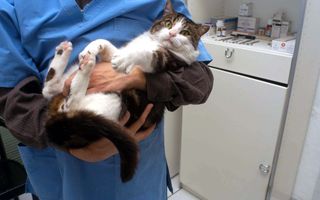(Finance) – In the presence of ministers Francesco Lollobrigida and Orazio Schillaci, was presented on first degree course in Veterinary Medicine in Lazioa historic project that fills a void in the region’s academic education. Fruit of the collaboration between the University of Tor Vergata and Maccarese Spa – one of the largest Italian agricultural companies with its 3,200 hectares of surface area – this course represents a milestone for the training offer and for the national veterinary sector.
“AND a unique opportunity for students: no other university in the sector has a comparable structure for carrying out theoretical and practical activities, thus making Maccarese Spa a true open-air laboratory for the training of future veterinarians”, we read in an official note. Claudio Destro, CEO of Maccarese Spasaid: “We are honored to have contributed to the birth of the first veterinary degree course in Laziofilling a gap that had been dragging on for many years and giving young people the opportunity to study in their Region, with considerable savings of time and money. This important result reaffirms, once again, the company’s commitment to supporting the values of attention to the territory, the development of new generations and the valorisation of skills, which represent the fundamental pillars of the success of our holding Edizione and of its subsidiaries”.
The course, already active since the 2024-2025 academic year, welcomed 80 students among over 900 applicants who participated in the admission tests. The lessons, which began in November, respond to a specific request from the territory: in Lazio, in fact, there are around 6 million pet animals and over 40 thousand farms in the agro-zootechnical supply chain, according to 2024 data from the National Zootechnical Registry. There growing sensitivity towards the human-animal relationship and the importance of guaranteeing the well-being of companion and farm animals make the training of highly qualified veterinarians crucial.
Patrizia Prestipino, guarantor for the Protection and Welfare of Animals of Rome Capitalunderlined: “Good news for our Region and for Rome, the first degree course in Veterinary Medicine in Lazio. Attention to animal welfare is now widespread and the profession of veterinary doctor is increasingly chosen as a mission. I am sure that this new course will stand out for its modern approach and close to people’s sensitivity.”
The course is based on the “One Health” approach, which integrates human, animal and environmental health. Nathan Levialdi Ghiron, rector of the University of Tor Vergatadeclared: “The inauguration of the first degree course in Veterinary Medicine in Rome and Lazio represents a historic milestone for our University and for the entire academic community. This project recognizes that 75% of emerging diseases, as highlighted by the WHO, are of animal origin. In an era where zoonoses such as COVID-19 and avian influenza demonstrate the interconnectedness between species, our course aims to train professionals capable of preventing and managing global health emergencies.”
The relevance of this approach is confirmed by the data ofWorld Health Organization (WHO): 60% of known infectious diseases and 75% of emerging diseases have animal origin. For this reason, the course’s educational offer includes mandatory internships at excellent facilities such as the Gregorio VII Veterinary Hospital, the Equivet Roma Hospital and the Maccarese Agricultural Company. Sabrina Alfonsi, councilor for Agriculture, Environment and Waste Cycle, highlighted: “The first Veterinary Medicine course in Tor Vergata enriches the training offer for students in Romecreating new professionalisms and promoting excellent scientific research activities”.
Gaetano Penocchio, president of FNOVIunderlined: “We are the country with the highest number of veterinary doctors in Europe in relation to the inhabitants, but the sector still requires many professionals. The new legislation on animal health opens up incredible professional opportunities. Veterinarians play a crucial role in animal healthfood security and biodiversity conservation”.
This new course is not only a response to local needs, but a model for academic training and for the sustainable development of the veterinary sector, representing a fundamental step towards a future in which human, animal and environmental health are increasingly interconnected.
